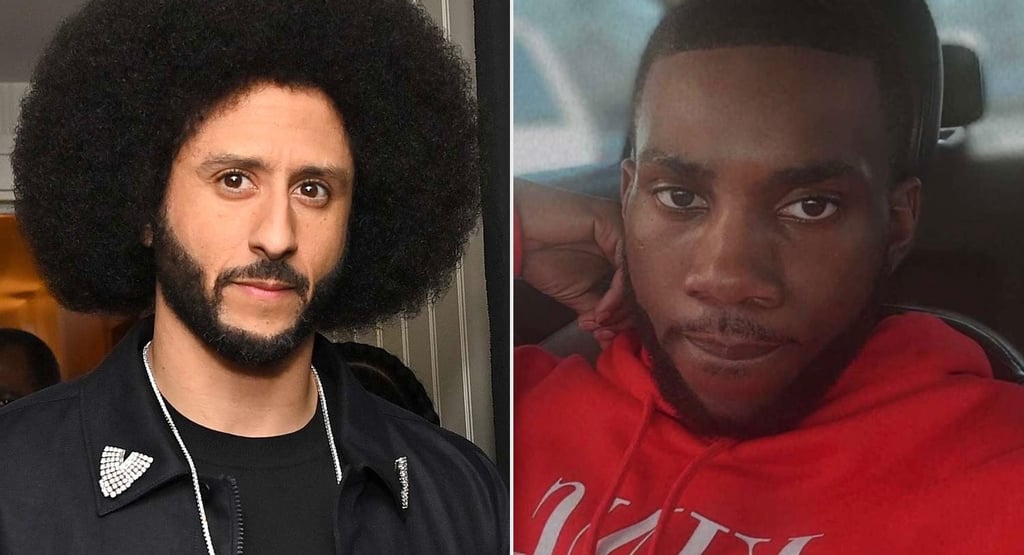Independent Autopsy Challenges Official Narrative in Death of Trey Reed
NEWS & HEADLINESFEATURED ARTICLES
10/5/20254 min read


Independent Autopsy Challenges Official Narrative in Death of Trey Reed
By Maurice Woodson
Kaepernick-Funded Autopsy Reignites Questions in Mississippi Hanging Case
An independent autopsy funded by former San Francisco 49ers quarterback and activist Colin Kaepernick has reignited public scrutiny surrounding the death of Demartravion “Trey” Reed, a 21-year-old Delta State University student found hanging from a tree on campus in Cleveland, Mississippi.
The independent forensic team—working under Kaepernick’s Know Your Rights Camp Autopsy Initiative—reported evidence of blunt force trauma inconsistent with suicide, raising new doubts about the state’s ruling that Reed took his own life. The report indicates injuries suggesting Reed was physically assaulted before his death, findings that sharply contradict the initial autopsy performed by the Mississippi State Medical Examiner.
While officials have not yet publicly addressed these independent findings, they’ve amplified the family’s demand for federal investigation and reopened conversations about racial violence, institutional credibility, and historic patterns of cover-up in Mississippi.
Too Many Questions
When Reed’s body was discovered early on September 15, 2025, authorities swiftly labeled his death a suicide by hanging. The official autopsy supported that conclusion, noting no signs of defensive wounds, broken bones, or external bruising. But from the start, Reed’s family disputed those claims.
Civil rights attorney Ben Crump, who represents the family, has questioned both the thoroughness and independence of the state investigation. “We’ve seen this pattern too often,” Crump said. “When a young Black man dies under suspicious circumstances, the truth often takes a backseat to institutional self-protection.”
The family says Reed was a positive, grounded young man—no history of mental illness, no indications of suicidal thoughts. They maintain that the physical evidence and surrounding inconsistencies simply don’t fit the state’s version of events.
Why Kaepernick Stepped In
Kaepernick’s initiative was created in response to similar high-profile cases where families questioned official findings after Black Americans died in police or state custody. His Know Your Rights Camp Autopsy Initiative provides free, independent forensic examinations for families “who have lost loved ones under police-involved or unexplained circumstances.”
By funding Reed’s independent autopsy, Kaepernick added weight and visibility to a case many feared might fade quietly into bureaucratic closure.
“Every family deserves the truth,” Kaepernick said in a statement through his organization. “Transparency is not optional when a life is lost and the system’s first instinct is to close the case.”
Disputed Evidence and a Demand for Transparency
The independent pathologist’s report—commissioned after the family obtained Reed’s body—details bruising patterns and internal injuries inconsistent with hanging alone. According to early summaries shared by the family’s legal team, the injuries “strongly suggest blunt force impact preceding death.”
Authorities have not yet confirmed or responded to these findings. However, Delta State University Police Chief Michael Peeler previously acknowledged that video evidence exists connected to the case but has not been released publicly.
That secrecy has only deepened mistrust. The family and civil rights advocates are now calling for full release of the footage and all law-enforcement documentation.
Echoes of History in the Deep South
For many across the country—especially within Black communities—the discovery of a young Black man hanging from a tree in Mississippi evokes unbearable echoes of racial terror from America’s past.
Civil rights historian Dr. Keisha Blount of Jackson State University contextualized the case bluntly:
“You cannot separate this incident from Mississippi’s long history of lynching. Even if authorities are right that this was suicide, they cannot erase the collective memory of violence and distrust that frames how Black people see these deaths.”
Mississippi has recorded more documented lynchings than any other state. That legacy, coupled with persistent racial disparities in law enforcement and the justice system, fuels skepticism when cases like Reed’s arise.
Community Outrage and Calls for Federal Oversight
Vigils for Reed have been held on campus and in neighboring towns, where students, clergy, and activists call for the FBI and Department of Justice to intervene.
Congressman Bennie Thompson, who represents Mississippi’s 2nd District, has joined those calls, urging federal oversight to ensure the investigation is transparent and credible.
“The symbolism of this death demands more than a local explanation,” Thompson said. “If there is any chance this young man’s death involved foul play, the nation must know.”
The Road Ahead: Justice or Another Closed Case?
As of early October, the Mississippi Bureau of Investigation has not announced plans to reopen the case. Toxicology results from the official autopsy remain pending, while the independent report continues to circulate through legal and activist networks.
The family’s next steps likely include civil litigation or a federal complaint seeking intervention from the U.S. Department of Justice Civil Rights Division.
For many, however, the deeper issue transcends legal channels. It’s about trust—and the centuries-old question of whether a Black life taken in the South will ever receive full, unvarnished justice.
My Final Thoughts
The independent autopsy has re-centered Trey Reed’s story not as a closed chapter but as a test case in how America confronts its racial past through its institutions in the present.
Whether this leads to new investigations or another cycle of silence remains to be seen. But one fact is undeniable: a young man’s life ended violently, and his family—backed by a growing chorus of voices—refuses to let his story be dismissed without truth.
"Trey deserves answers,” said Crump. “And until we have them, none of us can rest.”
Discover More Articles and News In Our Monthly Magazine: https://issue.blackzonemagazine.com/october2025/
